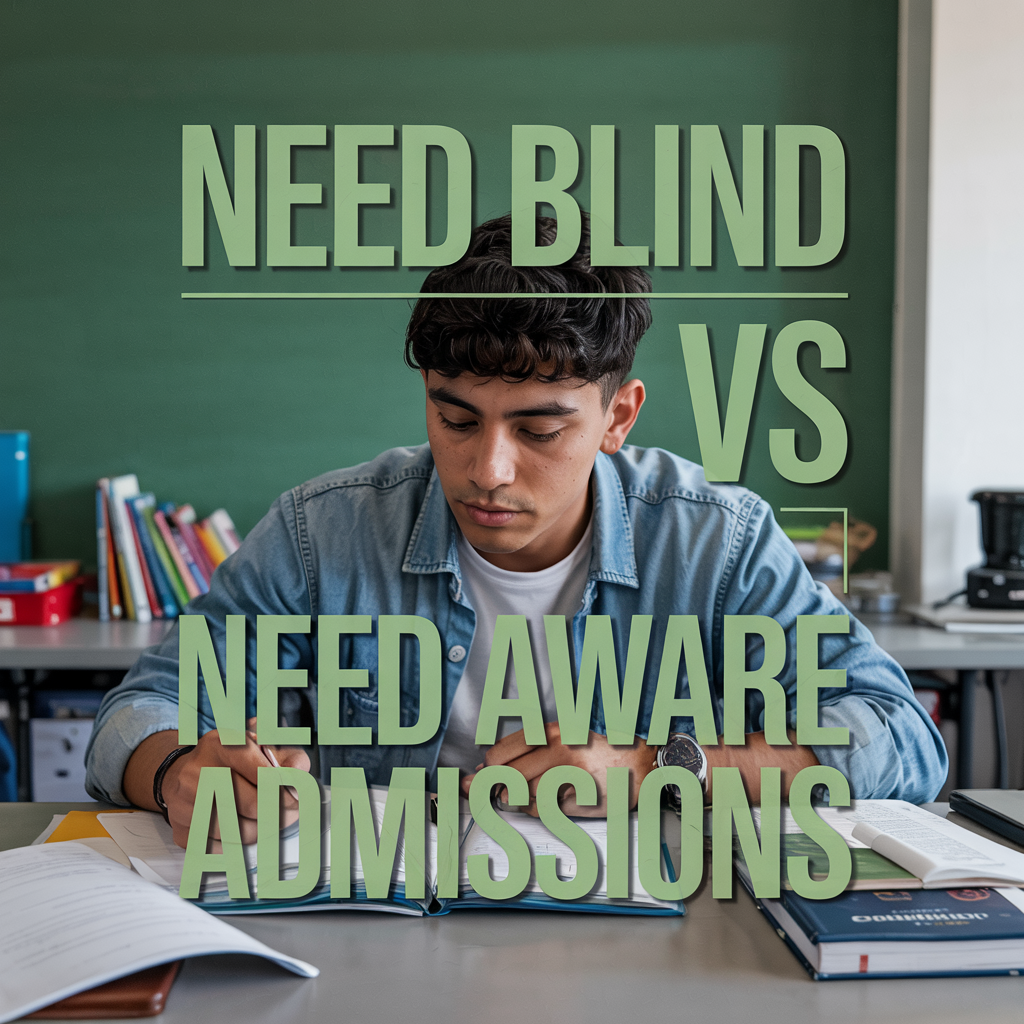“Need-Blind” vs. “Need-Aware” Admissions: What It Means for Your Application & Aid

When researching colleges, especially highly selective ones, you might encounter terms like “need-blind” and “need-aware” admissions. These policies describe whether a college considers your family’s financial situation when deciding to admit you. Understanding the difference between need blind vs need aware policies can help you strategize your applications, though the impact varies. Let’s decode these terms.
Does Your Ability to Pay Affect Getting In?
For many colleges in the U.S., the answer is no – your financial need college application information doesn’t influence the admission decision itself. However, for some, particularly private colleges with limited financial aid budgets, your ability to pay college admissions can be a factor. This is where need-blind and need-aware policies come into play.
What Does “Need-Blind” Admission Mean?
A college with a need-blind admission policy makes decisions about admitting first-year students from the U.S. without considering their family’s financial situation or ability to pay.
- How it works: The admissions office reads your application and decides whether to admit you based solely on your qualifications (academics, essays, activities, etc.). They do not look at whether you applied for financial aid or how much aid you might need.
- Financial Aid: If you are admitted to a need-blind school that also promises to meet 100% of demonstrated need (many, but not all, do), the financial aid office will then determine your aid package based on your FAFSA/CSS Profile information.
- Who it applies to: Usually applies only to U.S. citizens and permanent residents. Policies for international students often differ (see below).
- Prevalence: Only a relatively small number of colleges (often the wealthiest, most selective ones) are truly need-blind for all domestic applicants. A need blind colleges list often includes top-tier private universities and liberal arts colleges.
Being need-blind is a significant financial commitment for a college.
What Does “Need-Aware” Admission Mean?
A college with a need-aware (or need-sensitive) admission policy may consider an applicant’s ability to pay as one factor in the admission decision, particularly for borderline applicants or those applying near deadlines.
- How it works: For most applicants, need may not be a factor. However, if the college has limited financial aid funds, they might use financial need to make final decisions among otherwise similar candidates, especially when filling the last spots in the class or admitting students from the waitlist. The need aware impact is often felt most by students requiring significant financial aid.
- Why they do it: Colleges have budgets. Need-aware policies allow them to manage their financial aid spending and ensure they can support the students they admit.
- Prevalence: Many private colleges and some public universities (for out-of-state students) operate under need-aware policies, even if they don’t advertise it prominently.
Key Differences Summarized
| Feature | Need-Blind | Need-Aware |
|---|---|---|
| Considers Finances? | No (for domestic first-year applicants) | Yes, potentially (as one factor among many) |
| Impact on Admission | Financial need does not influence the decision. | Financial need might influence the decision for some. |
| Who It Affects Most | No direct impact on admission chances. | Might impact borderline applicants needing significant aid. |
| Common At | Wealthiest, most selective private institutions. | Many private colleges, some public (out-of-state). |
These are important selective college admissions policies to understand.
Impact on International Students
Crucially, very few U.S. colleges are need-blind for international applicants. Most are need-aware for students who are not U.S. citizens or permanent residents, meaning applying for financial aid can significantly impact admission chances. International students needing aid should research colleges specifically advertising aid for them.
How Does This Affect Your Application Strategy?
- Don’t Let it Deter You (Mostly): Apply to colleges that are a good fit, regardless of their policy. Need is usually only one factor among many, even at need-aware schools. Strong applicants are still admitted with high need.
- Be Aware: Understand that at need-aware schools, needing a large amount of aid could be a tip factor if you are a borderline applicant.
- Apply for Aid Anyway: Never not apply for financial aid you need just because a school is need-aware. You can’t receive aid if you don’t apply.
- Focus on Your Strengths: Build the strongest application possible in all other areas (academics, essays, activities).
- Build a Balanced List: Include schools with different aid policies and generosity levels on your list.
📚 Make sure your college applications stand out—highlight your achievements and extracurriculars with a Cirkled In profile that impresses!
Where to Find a College’s Policy
- College Admissions/Financial Aid Website: Search for terms like “need-blind,” “need-aware,” “financial aid policy,” or check their FAQs.
- Common Data Set: Section C7 sometimes indicates if need was considered. Section H2 details aid policies.
- Ask Admissions (Carefully): You can politely ask how financial need factors into their review process.
Final Thought: Policy Matters, But Apply Strategically
Understanding need blind vs need aware policies provides context for the admissions process, especially at selective schools. While need-blind admission removes financial consideration from the acceptance decision for domestic students, many excellent colleges operate under need-aware policies. Focus on creating a strong application and building a balanced college list that includes financially viable options. Don’t let fear of the need aware impact stop you from applying for the aid you need.
Need more tips on college applications, scholarships, or just how to survive this whole process? Cirkled In has your back—check out Cirkled In resources to help you through every step of your college journey!
Check out Cirkled In and start owning your future today!



0 Comments